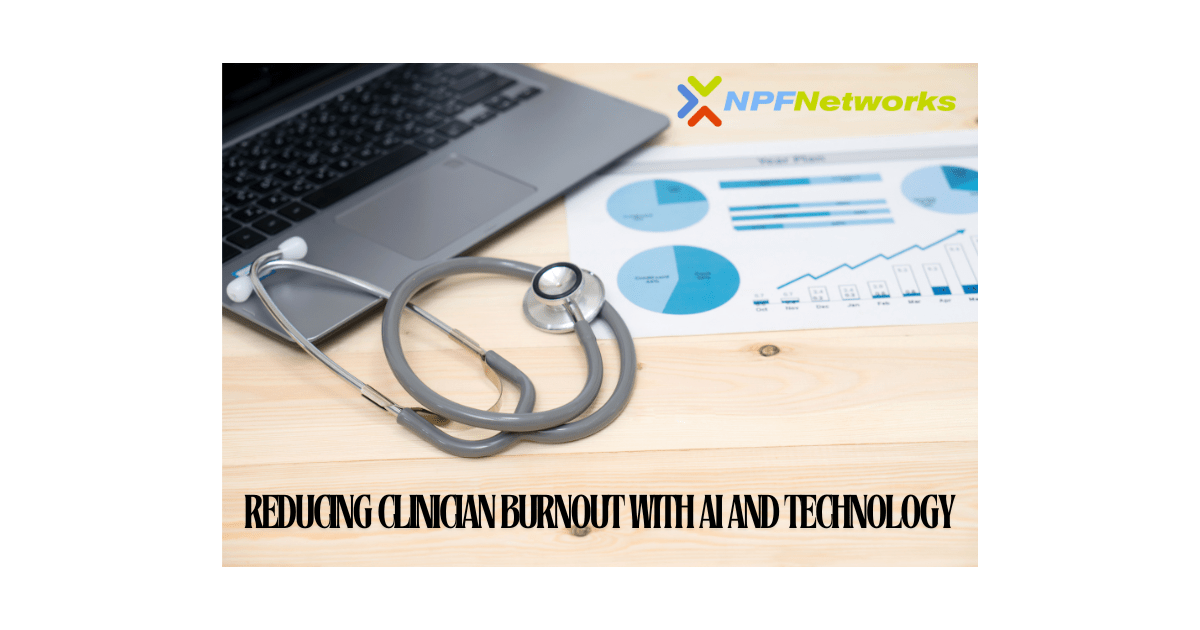In the healthcare industry, clinician burnout is a growing concern. The rise in administrative tasks, from documentation to insurance claims, consumes time that could be spent on patient care. According to the American Medical Association (AMA), more than 50% of physicians report feeling burned out, and administrative burdens are one of the leading causes. To address this, healthcare organizations are increasingly turning to technology—particularly artificial intelligence (AI)—to streamline administrative workflows and improve the quality of care.
How Administrative Tasks Lead to Burnout
Clinicians often face a relentless volume of paperwork, data entry, and reporting that detracts from their core responsibility: caring for patients. Dr. Tait Shanafelt, a leading expert on physician well-being, notes, “The documentation burden contributes significantly to burnout. Clinicians spend nearly two hours on administrative work for every hour spent with patients.”
This imbalance not only impacts clinician satisfaction but also patient outcomes. Burnout can lead to higher error rates, reduced empathy, and even early retirements, contributing to staffing shortages that further strain the system. The solution? Technologies like AI that can handle repetitive, time-consuming tasks and give clinicians more time to focus on what they do best.
AI in Healthcare: Reducing Administrative Burden
AI is revolutionizing the way administrative tasks are handled in healthcare. From automating medical transcription to assisting with coding and billing, AI-powered solutions are freeing up valuable time for clinicians. For instance, Natural Language Processing (NLP) technology can interpret and transcribe clinicians’ notes in real-time, reducing the need for manual data entry. “AI has the potential to reduce clinical documentation burden, improving both physician well-being and patient outcomes,” says Dr. John Halamka, president of the Mayo Clinic Platform.
Other AI tools, like those powered by machine learning, can assist in processing insurance claims, flagging errors, and predicting reimbursement timelines. By taking on these administrative duties, AI solutions can cut down on the hours spent managing paperwork, allowing healthcare providers to focus more on direct patient care.
Automating Scheduling and Patient Communication
AI’s role extends beyond documentation and billing. Technologies such as automated scheduling systems can drastically reduce the amount of time spent coordinating appointments, staff schedules, and follow-ups. AI chatbots and virtual assistants are also gaining traction in patient communication, handling routine queries, appointment reminders, and prescription refills.
By automating these tasks, clinicians can spend more time on complex cases and patient interactions that require human expertise. The result? Reduced workload, improved patient satisfaction, and lower levels of clinician stress.
The Role of Cloud Solutions and Integration
Beyond AI, cloud-based solutions are another key technology that can reduce administrative burdens. Cloud platforms allow healthcare systems to streamline data sharing, documentation, and record-keeping across departments. They also improve collaboration among care teams, allowing them to access patient information in real-time.
A study by McKinsey & Company found that healthcare providers who adopt integrated cloud systems see a reduction in administrative workloads of up to 20%, thanks to more efficient information processing and reduced redundancy. These platforms also make it easier to adopt AI solutions, as they centralize data and enable seamless integration with various tools.
Embracing Technology to Improve Clinician Well-being
Clinician burnout is a complex issue, but deploying AI and other advanced technologies can help alleviate some of the most pressing administrative challenges. By automating routine tasks, from documentation to scheduling, healthcare providers can reclaim valuable time, reduce stress, and ultimately provide better care for their patients.
As AI continues to evolve, it promises to transform healthcare in ways that enhance both operational efficiency and patient outcomes. By investing in these technologies, organizations not only lighten the administrative load but also contribute to a healthier, more sustainable work environment for clinicians.
At NPF Networks, we specialize in helping healthcare providers implement cutting-edge technologies that improve workflows and reduce burnout. Our AI-powered solutions and cloud platforms are designed to integrate seamlessly into your existing systems, freeing your team to focus on what truly matters—your patients.
Key Takeaways:
- Administrative tasks like documentation and scheduling are significant contributors to clinician burnout.
- AI solutions, such as Natural Language Processing and machine learning, can reduce time spent on paperwork and billing.
- Cloud-based systems enable better data integration and reduce redundancy, further lightening the administrative load.
- Healthcare organizations that embrace technology will see improvements in both clinician well-being and patient care quality.
Are you ready to transform your healthcare practice with AI and cloud solutions? Contact NPF Networks at 303-778-9499 to learn how we can help you reduce clinician burnout and improve operational efficiency.







Leave a Reply